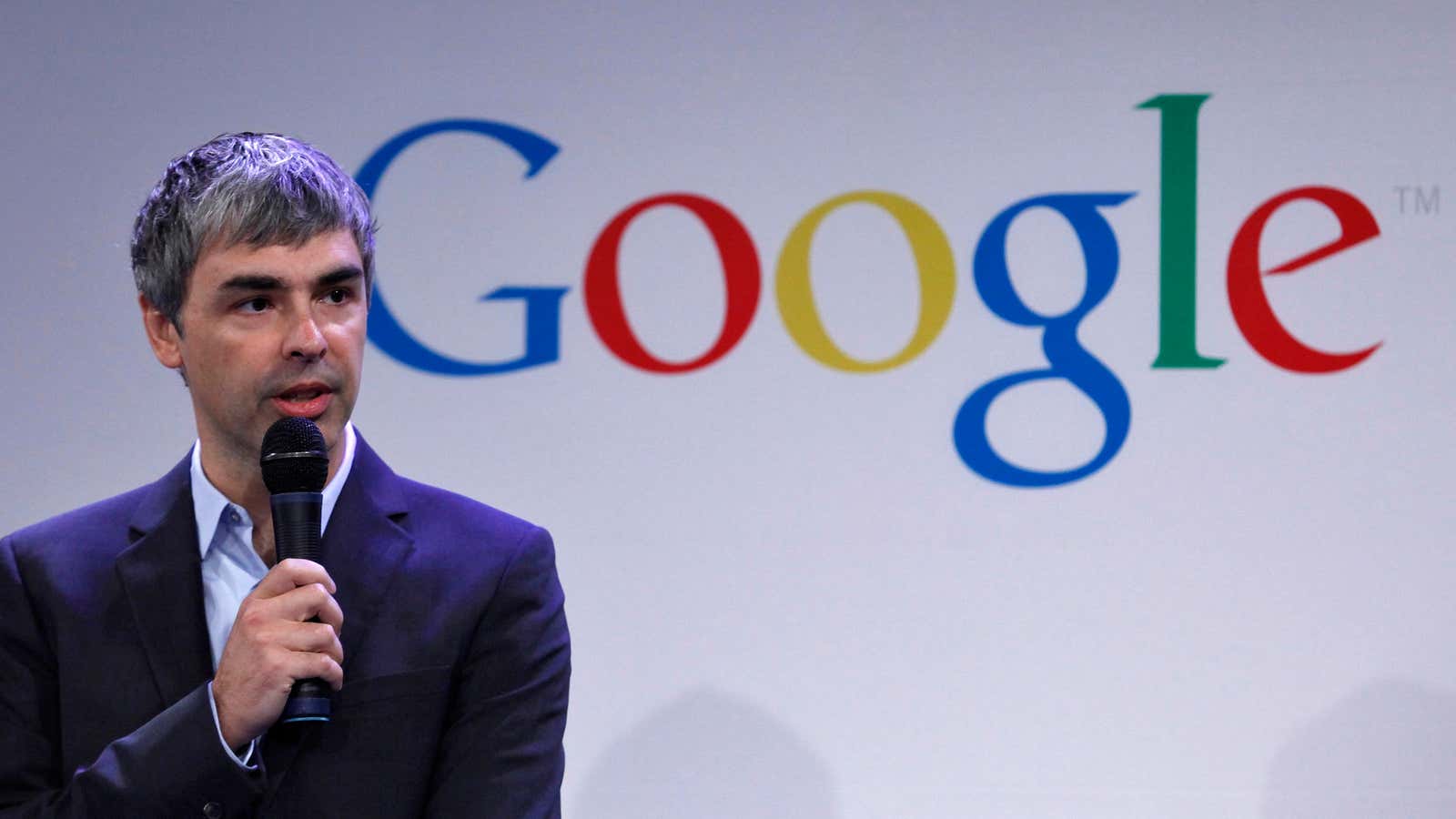Nearly a decade passed between Google co-founder Larry Page’s two stints as the company’s CEO. He stepped down to a diminished role when he ceded the job to Eric Schmidt in 2001, then took it back in 2010. In between, he was often unhappy, and frequently disconnected from the company. But that time transformed him remarkably, and for the better, Nicholas Carlson explains in a lengthy profile at Business Insider.
Carlson compares Page to Steve Jobs: as Jobs did after returning to Apple, Page dramatically changed his company when he returned to the top.
Not everything is binary
“Asked about his approach to running the company, Page once told a Googler his method for solving complex problems was by reducing them to binaries, and then simply choosing the best option,” Carlson writes. “Whatever the downside he viewed as collateral damage he could live with.”
That collateral damage sometimes consisted of people. In 2001, frustrated with the layer of managers overseeing engineers, Page decided to fire all of them, and publicly explained that he didn’t think the managers were useful or doing any good.
Page was wrong about the engineers not needing managers, Carlson writes. Resources ended up getting allocated badly, there was redundancy, and people didn’t get needed feedback, so the company started hiring product managers again.
Later on, after stepping down as CEO, Page became president of products. In that role, with the help of Jonathan Rosenberg, Page agreed to a hybrid where the company hired computer scientists with an interest or acumen as product managers, instead of just MBAs.
His basic idea, that engineers should be managed by other engineers, ended up being right; and it became a standard management practice in Silicon Valley.
Kindness matters, and you can’t manage by argument
Early on, Google was a place where only ideas mattered, and human niceties fell by the wayside, which was largely a reflection of Page’s style, Carlson writes. He wasn’t particularly comfortable dealing with the human side of management, and would do things like publicly counting out loud the seconds it would take a slow product demonstration to load.
Page’s relationship with co-founder Sergey Brin, in which problems, ideas, and conflicts were hashed out in fierce and extremely blunt arguments, engendered an argumentative atmosphere for the company’s senior management, Carlson writes. Page would sometimes actively provoke arguments between executives, then sit and watch them play out.
That atmosphere persisted even through Eric Schmidt’s time as CEO. Over time, Page came to realize that this had stopped being a strength for the company, but a problem. Instead of surfacing the best ideas, it resulted in executives who could barely tolerate working together.
Last year, back in the top spot, Page sent a message that aggression was no longer to be held up as a desirable trait. At one of his first meetings, a retreat with major executives, he said that the company’s high ambitions were impossible to achieve with all the conflict, and that there would henceforth be “zero tolerance for fighting.”
His rationale, according to Carlson? You can grow market share by survival of the fittest and fighting things out. But creating whole new markets and solving transformative problems takes actually working together.
Delegation is no longer a bad word
One of Page’s early rules of management was “Don’t delegate: Do everything you can yourself to make things go faster.”
He was a notorious control freak, unwilling to let things out of his immediate purview, or to trust people to do their jobs well.
His eventual return to the CEO job was spurred primarily by a belief that Google had dialed back its ambitions in a worrying way, Carlson writes. They were making incremental changes instead of trying to build the next transformative product.
The success of Android, which he oversaw as president of products, convinced him he was ready for the CEO role again. And that was a success born of delegation. Page succeeded by picking someone great (Andy Rubin, who now leads Google’s robotic efforts) and insisting he be left alone. It was a success of management, not just of engineering.
When he took over again, Page gave the executives in charge of the company’s most important divisions real power and autonomy. It’s a move that would have been unimaginable from him 10 years earlier.
